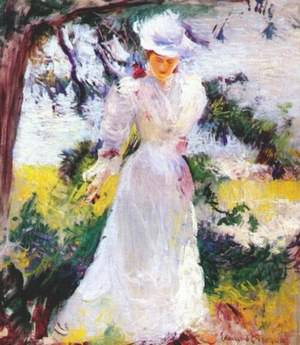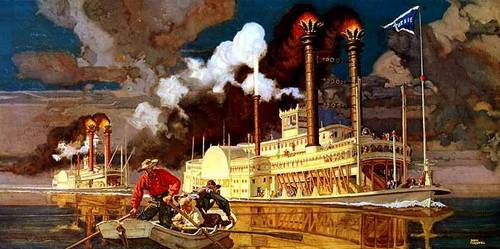Divers
Old English ? What's that ?
Old English (Ænglisc, Anglisc, Englisc) or Anglo-Saxon is an early form of the English language that was spoken and written by the Anglo-Saxons and their descendants in parts of what are now England and southern and eastern Scotland between at least the mid-5th century and the mid-12th century. What survives through writing represents primarily the literary register of Anglo-Saxon.
It is a West Germanic language closely related to Old Frisian and Old Saxon. Old English had a grammar similar in many ways to Classical Latin. In most respects, including its grammar, it was much closer to modern German and Icelandic than to modern English. It was fully inflected with five grammatical cases (nominative, accusative, genitive, dative, and instrumental), three grammatical numbers (singular, plural, and dual) and three grammatical genders (masculine, feminine, and neuter). The dual forms occurred in the first and second persons only and referred to groups of two.
Adjectives, pronouns and (sometimes) participles agreed with their antecedent nouns in case, number and gender. Finite verbs agreed with their subject in person and number.
Nouns came in numerous declensions (with deep parallels in Latin, Ancient Greek and Sanskrit). Verbs came in nine main conjugations (seven strong and two weak), each with numerous subtypes, as well as a few additional smaller conjugations and a handful of irregular verbs. The main difference from other ancient Indo-European languages, such as Latin, is that verbs can be conjugated in only two tenses (vs. the six "tenses" – really tense/aspect combinations – of Latin), and have no synthetic passive voice (although it did still exist in Gothic).
Gender in nouns was grammatical, as opposed to the natural gender that prevails in modern English. That is, the grammatical gender of a given noun did not necessarily correspond to its natural gender, even for nouns referring to people. For example, sēo sunne (the Sun) was feminine, se mōna (the Moon) was masculine, and þat wīf "the woman/wife" was neuter. (Compare German cognates die Sonne, der Mond, das Weib.) Pronominal usage could reflect either natural or grammatical gender, when it conflicted.
From the 9th century, Old English experienced heavy influence from Old Norse, a member of the related North Germanic group of languages.
(from Wikipedia)
Lager beer (P.L. Dunbar)
Un "poème pour rire", dont le narrateur est à l'évidence un Allemand, amateur (repenti) de bière blonde (lager beer). L'accent allemand est caricaturé en inversant les consonnes sourdes et sonores (t pour d, et d pour t, par exemple).
I lafs und sings, und shumps aroundt.
Und somedimes acd so gueer.
You ask me vot der matter ish?
I'm filled mit lager peer.
I hugs mine child, und giss mine vife.
Oh, my dey was so dear;
Bot dot ish ven, you know, mire friend,
I'm filled mit lager peer.
Eleetion gomes, I makes mire speech,
Mine het it vas so glear:
De beoples laf, und say ha, ha,
He's filled mit lager peer.
De oder night I got me mad,
De beoples run mit fear.
De bleeceman gome und took me down
All filled mit lager peer.
Next day I gomes pefore de judge,
Says he, "Eh heh, you're here!"
I gives you yust five-fifty-five
For trinking lager peer.
I took mine bocket book qvick oud,
So poor I don't abbear;
Mine money all vas gone, mine friend
Vas gone in lager peer.
Und den dey dakes me off to shail,
To work mine sendence glear,
Und dere I shwears no more to be
Filled oup mit lager peer.
Und from dot day I drinks no more,
Yah, dat is very gueer,
But den I found de tevil lifed
In dot same lager peer.








